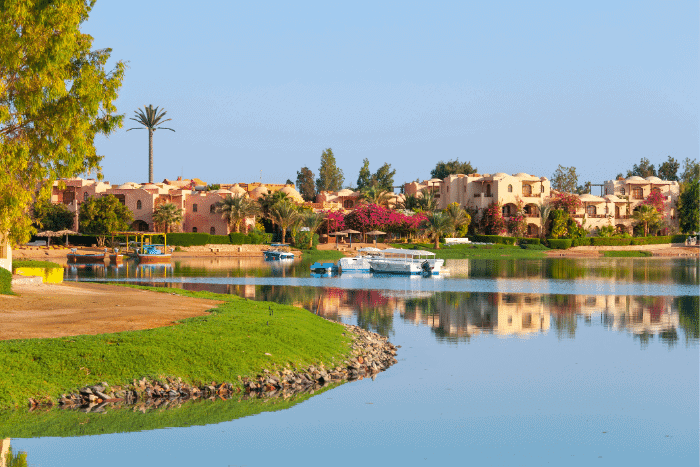Priority Banking Offshore for High-Net-Worth Individuals
November 17, 2023
Here at Nomad Capitalist, we talk a lot about how important it is to open your first offshore bank account. It acts as your gateway to global citizenship as it is the first easy step you can take into international financial waters.
These days, you have plenty of options, from opening an account online from the comfort of your home to traveling to any number of countries. But not all banks are created equal.
So, where should the multimillionaire bank offshore?
In this article, we explore the priority banking options to protect your wealth, know your money is in the best possible hands, and receive the best treatment.
Nomad Capitalist has helped 1,500+ high-net-worth clients from around the world. Find out how here.
Offshore Banking Hubs Today
Historically, banking offshore was the province of the ultra-wealthy and immediately associated with people stashing money they didn’t want to pay taxes on in places like Switzerland. While that has been true in the past, we’ve come into a new era of transparency.
The real benefit of banking offshore in today’s world is diversification. It’s about going where you are treated best – opening accounts at the best banks, getting access to the best currencies, and having the tools you need to build a global lifestyle.
The offshore banking hubs of the past will not always help you achieve this. In fact, our list of the best offshore banks doesn’t include a single bank from Switzerland.
A lot has changed in the world of offshore banking.
What hasn’t changed is that there are still private banks. If you have a million – or two, or five, or more – to put in an account, there are many banks in developed countries that will be happy to take you.
The Bank of Singapore, for example, will give you a private account manager if you deposit $2,000,000 USD.
If you’re a high or ultra-high-net-worth individual looking to open an offshore account, you might consider looking into the new Asian wealth centers. Opening an account in Hong Kong or Singapore may be the best option for someone who has that amount of money that they are looking to simply park somewhere.
It could also be worth looking into any number of up-and-coming countries that are out to make offshore banking easier for entrepreneurs. Georgia, Armenia, or Panama could play a very beneficial role in your offshore banking plan.
What to Seek and Avoid in Offshore Banks

There are generally two types of banks to avoid when you’re looking to go offshore as a high-net-worth individual: the traditional US/Swiss banks and the big, international mega-banks.
The problem with US banks is that, when you really get down into their expertise, they have a very local mindset. It doesn’t matter how focused the bank is on high-net-worth individuals or how much experience they say they have with international business, they really only know the US.
If you have to explain to the bank teller how to spell Istanbul because they’ve never even heard of it, you’re going to the wrong bank.
Swiss banks are largely a pain to deal with, especially if you’re a US citizen or even a former US citizen. Whether you’re depositing five or fifty million dollars, they will bombard you with paperwork and draw the process out.
The juice is not worth the squeeze.
Swiss banks are a prime example of old-school marketing that doesn’t live up to the hype.
When looking for anything – a place to live, to invest, or to bank – you’ll want to avoid the marketing hype.
Both US and Swiss banks are some of the big name brands in offshore banking, but the problem with chasing brand name instead of real value is that you end up with more problems than solutions.
The other place we avoid generally for that reason is Liechtenstein. They have a very particular kind of person they’re looking for and it feels like a fight to open an account there.
If you are trying to open an account with five million, you don’t want to feel like you have to fight the bank to get in. You want to work with a bank that wants you.
Working with the big, international mega-banks will create similar problems for you. HSBC, Citibank, Chase, and others with branches all over the world are not worth your time. In saying that, working with banks on a local or regional level is fine, but you’re going to run into problems as soon as you go international.
So, what kind of banks do we like? What kind of banks are widely talked about within private banking circles as good options?
BNP Paribas Bank in France is a great option.
In Singapore, you could go to the Bank of Singapore or DBS Private Wealth. While Singapore is generally seen as one of the name brands of offshore banking, it delivers on the market hype with real value.
Staying in Asia, KEB Hana Bank is also worth your time. If, after exploring other options and avenues, your heart is set on Switzerland, you could try Credit Suisse.
Priority Offshore Banking for HNWIs

Somewhere in between the mass market banks that want a $1 or $1,000 deposit and the private banks in Liechtenstein that come with a $2,000,000 requirement and all the fancy perks is the priority bank.
If you go to Singapore and walk into any of the big three banks out there, you’ll easily see the difference between them and banks in places like Liechtenstein or Switzerland.
Putting a quarter of a million into an account will get you an account manager, but they won’t be as good or as stable thanks to a high turnover rate.
And it won’t be nearly as sexy, but they’re still going to bring you tea or champagne while you wait.
Most importantly, opening an account with a priority bank like one of those in Singapore will allow you to use the bank as your global anchor, making it easier for the people you do business with to understand your nomadic lifestyle on a financial and legal level.
Now, Singapore is the new wealth hub for the 21st century, but you shouldn’t stop there. Use a priority account there as a starting point in creating your banking portfolio and open a series of smaller priority accounts in other countries.
Go to the UAE and put $100,000 in a priority account there. Then, go to Georgia and create a priority banking relationship with a deposit of $20,000. Depending on where you’re from, you could even go to the US and become a Chase Private Client with $250,000.
Set up a series of banks around the world with one as a kind of lynchpin so that you can get the best of all worlds.
In our modern era, the two million dollar product isn’t going to be that much superior to what you’re going to get for a quarter of a million. Not for the price you’ll be paying.
It’s an entirely different story if you’re looking into the twenty or thirty million levels. Accounts like Chase’s Private Wealth are going to be superior to any priority account you’d be able to open.
But, for a seven- or eight-figure entrepreneur, having a network of priority bank accounts will go a long way to protecting your wealth and opening up new opportunities.
Access Regional Investments Opportunities

One of the opportunities you will afford yourself by building a portfolio of banks is the ability to invest and do business in other regions of the world.
Take Egypt, for example. You may have heard about buying real estate in Cairo. It’s one of the cheapest cities in the world to buy real estate (per meter). But there are issues on the governance level that would need to get cleared up before we could really consider investing there.
If you were to buy there, it wouldn’t be impossible to do so through an account in the United States, but it would come with a few more hoops to jump through compared to working with an account in Singapore. But even an account in Singapore wouldn’t be as convenient and simple as using a bank account in Dubai.
Regional banks are key to investing in different areas of the world. They have a natural advantage because they know the region better than any other bank. They also help you hold different currencies and consolidate the investments you’re making in local countries.
In this way, a network of offshore priority banks will give any high-net-worth individual access to different markets and perhaps even access to different corporate bonds, stocks, or investment opportunities unavailable elsewhere.
For example, Asia is a place where many people want to invest. Many banks in the region will give you access to investments that you can only get in Asia.
So, while opening one offshore bank account is a good first step, it shouldn’t be your last.
Redundancy for High-Net-Worth Individuals
Finally, having multiple priority banking accounts around the world builds on the basic principles of diversification.
It’s important to have redundancies while living the Nomadic Capitalist lifestyle. You don’t really want to have just one bank that you’re working with. Your entire lifestyle could fall apart if anything were to happen to that one bank.
If that account gets frozen for whatever reason, you have nowhere else to turn to keep up with your bills or payroll. If that bank starts de-risking, like HSBC has with American citizens, and wants to get rid of people who are living where you are, you don’t want to be stuck holding the bag with all your money in one bank.
If you’re a high-net-worth individual, a network of banks will do the most to protect you in case of any trouble.
And this protection extends beyond problems with individual banks. Using a network of offshore banks from around the world can protect you if any one of the countries where these banks are based goes through any instability or change.
If increased government regulations make one of your banks less desirable to work with, you don’t have to hurriedly find somewhere else. If the value of a currency declines dramatically, you have somewhere else to take your money.
The more diverse your banking portfolio, the more protected you are. So, expand your horizons and build a banking portfolio that will help you go where you’re treated best.
Do you need help exploring your offshore banking options? To find out how we can help, reach out here.


Does Puerto Rico Pay Taxes to the US?
It’s a common question and one that often fuels confusion, debate, and a fair share of misinformation – Do residents of Puerto Rico actually pay US federal taxes? When most people think of US tax obligations, they naturally assume they apply uniformly across all US citizens. But when it comes to Puerto Rico, things are […]
Read more

Zug Canton Taxes: The Ultimate Destination for Wealth Management in Switzerland
Switzerland’s global reputation is built not just on stunning views of Alpine peaks and serene lakes but also on a foundation of exceptional quality of life, world-class infrastructure and investor-friendly tax policies. The results speak for themselves: efficient public transport seamlessly links cities and villages; the standard of living regularly ranks among the highest in […]
Read more

How Smart Investors Use Venture Capital to Build Wealth
Big companies like Google, Amazon, Facebook and Apple all started out as bold ideas backed by venture capital. Decades later, the same firms are household names, as familiar to most people as electricity, the internet, or the telephone. But hindsight is a fickle friend. The truth is, it wasn’t always so obvious they’d succeed. These […]
Read more





